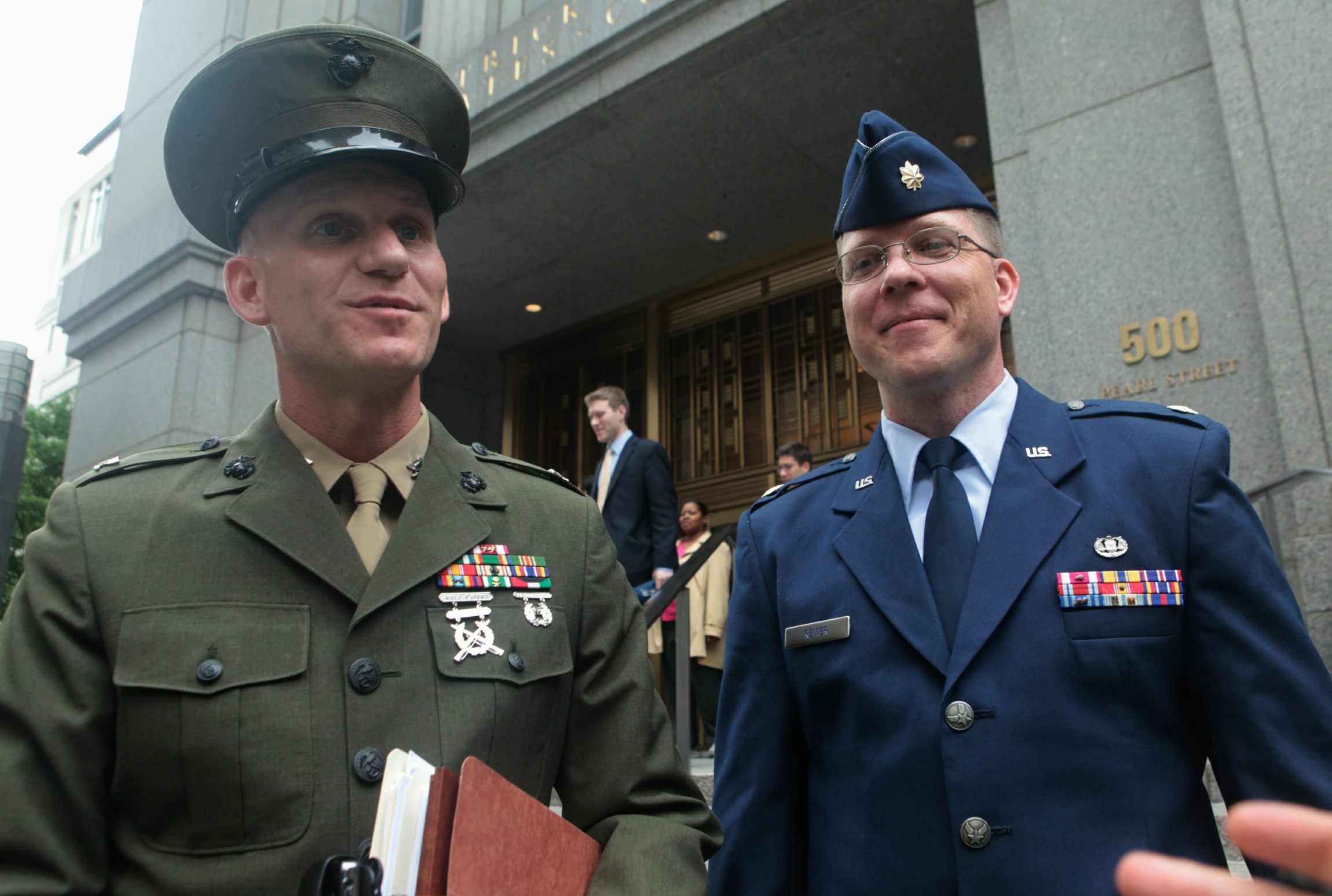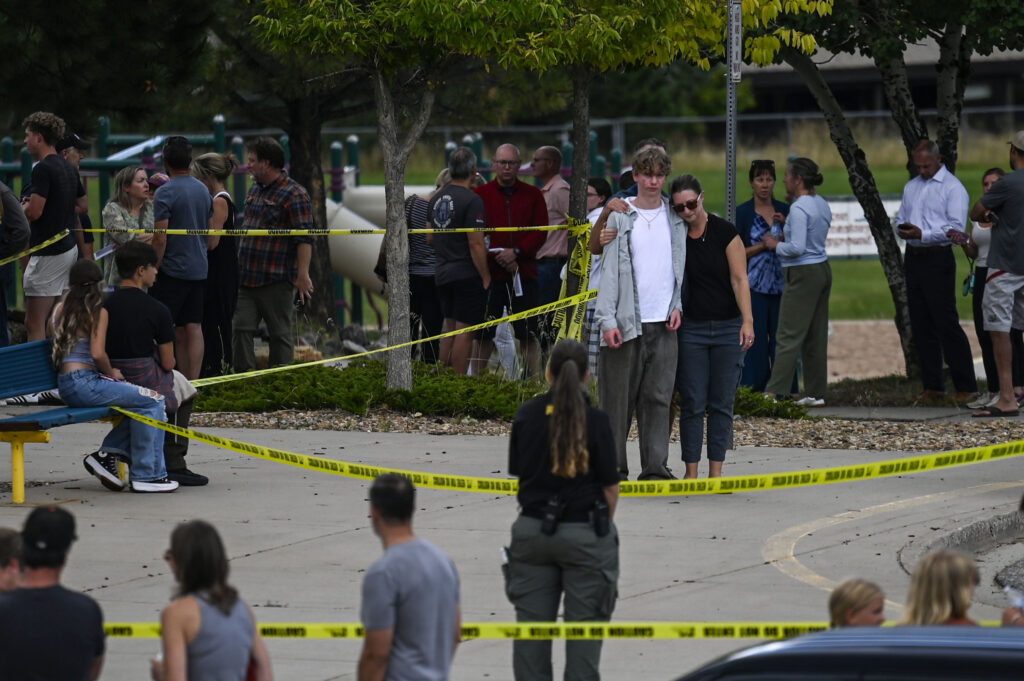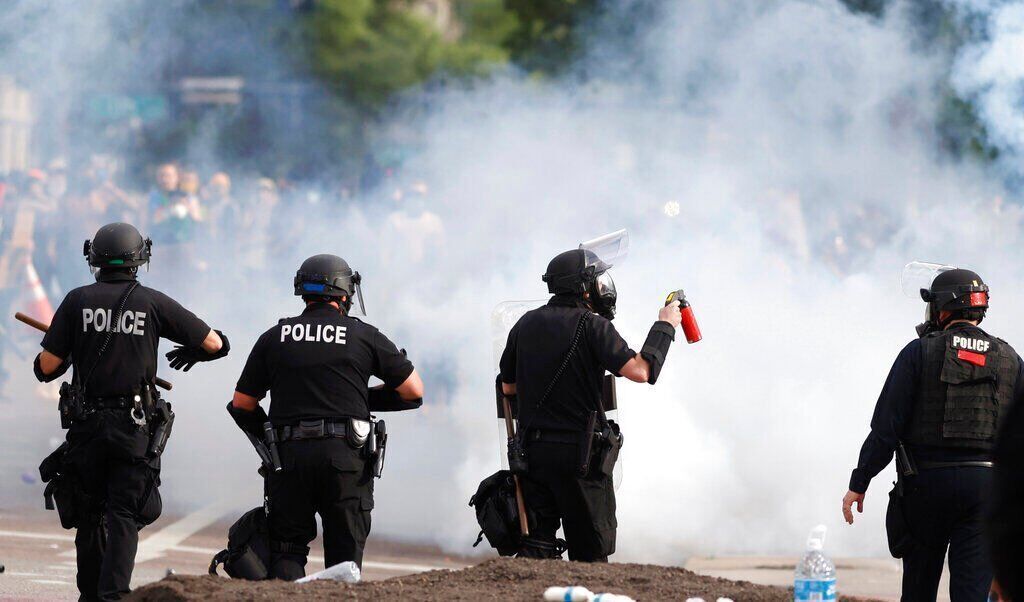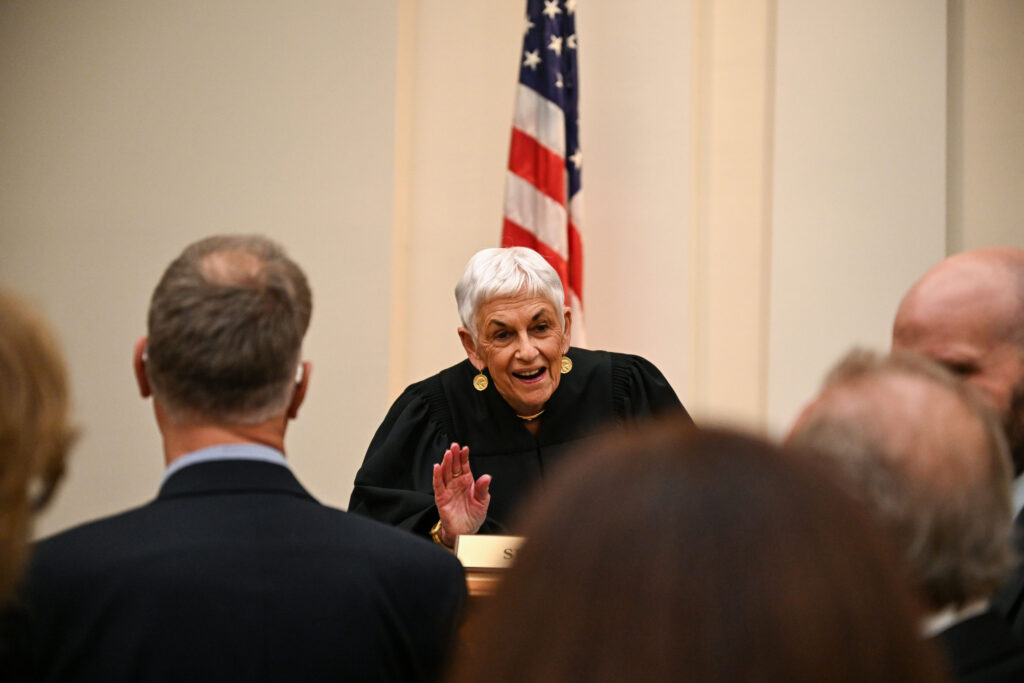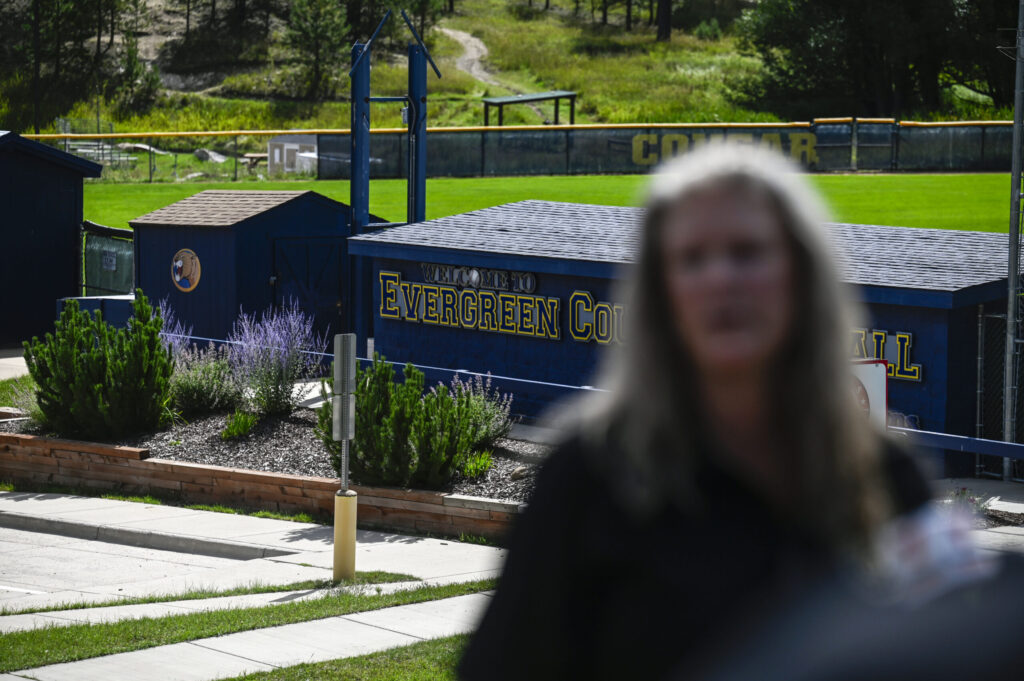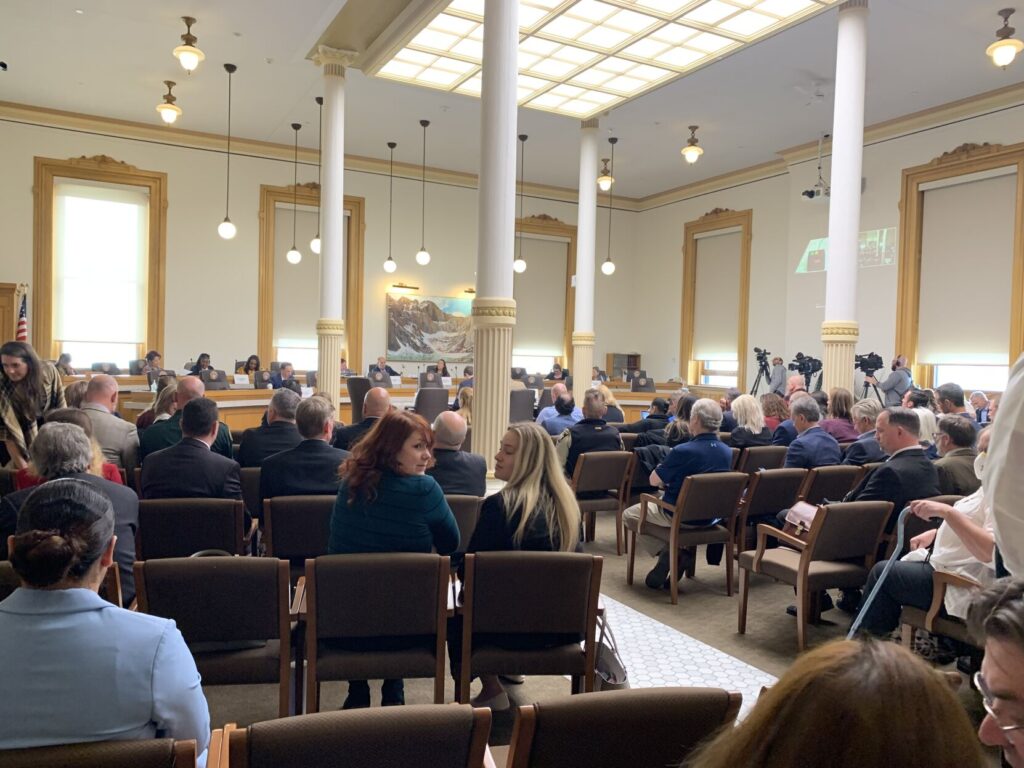COLORADO REMEMBERS | Military defender-turned Colorado court official says military commissions failed to make US safer
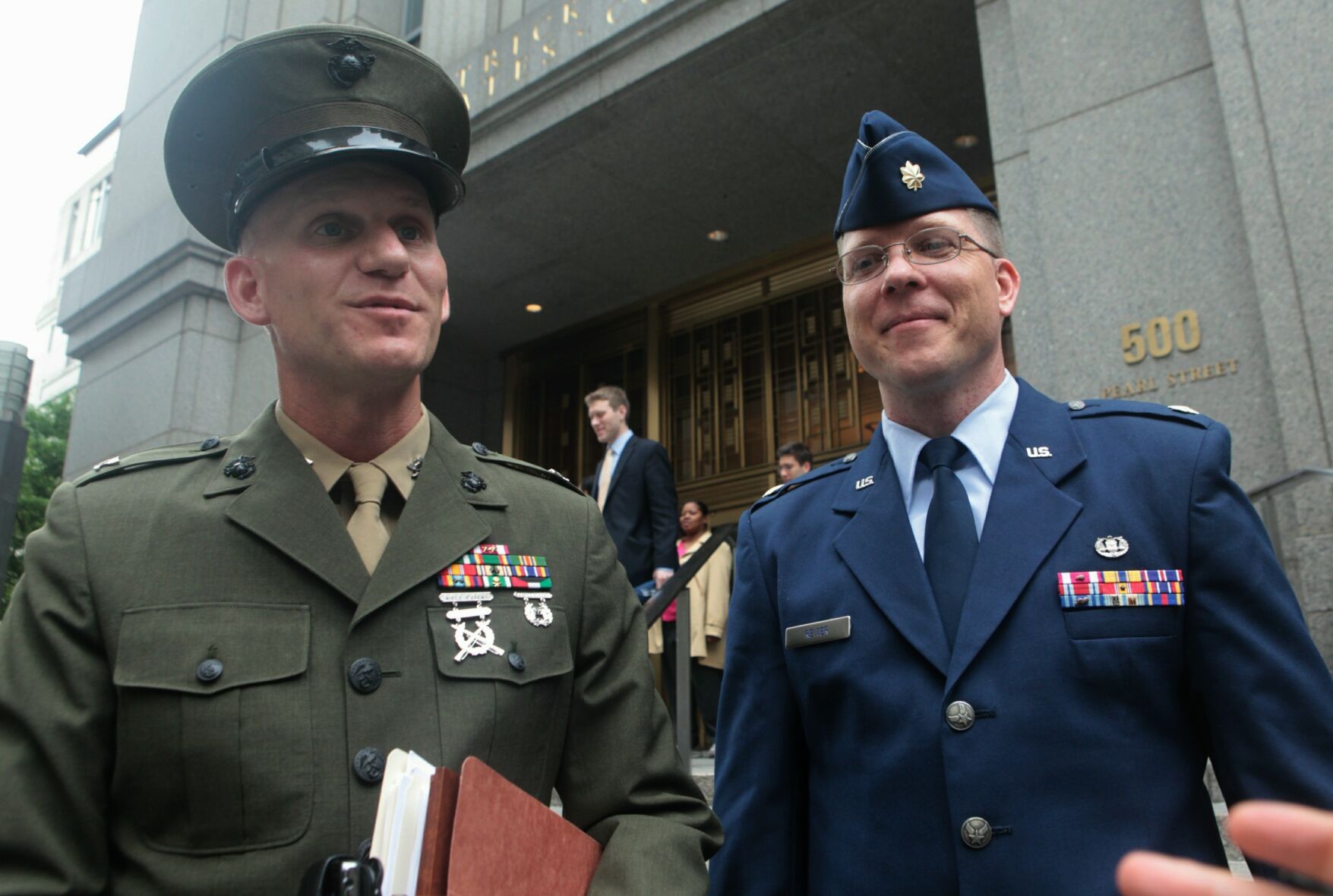
Jeffrey Colwell was a relatively new military judge at Camp Lejeune, the Marine Corps base on the coast of North Carolina. He went on the bench in the early afternoon. He remembers taking a plea from a soldier and going through a lengthy motions session. Colwell got off work around 7 p.m.
The date was Sept. 11, 2001.
“I had no idea till I got home that the towers had actually come down,” he recalled.
Colwell retired from the Marine Corps in 2012 at the rank of colonel, when he moved to Colorado to become the clerk for the federal trial court located in Denver. Prior to his pivot to the civilian justice system, however, Colwell’s journey wound a unique path through the war on terror and to the office that defended those who the government suspected to be terrorists.
According to The New York Times, a total of 780 men were held at the U.S. military prison at Guantánamo Bay in Cuba, the first of whom arrived in January 2002. Former President Barack Obama issued an executive order shortly after taking office to close the facility within one year. Not only is it still open, but 39 detainees remain.
Shuttering Guantánamo was – and still is – a priority for progressives. Human Rights Watch called the extended use of military commissions a “grave mistake.”
“Given their substandard procedures and tainted history, Human Rights Watch does not believe that judgments handed down by military commissions will be perceived as legitimate, either domestically or internationally,” the organization said.
Colwell shares that point of view. Guantánamo is an example, he said, “to those around the world who want to do us harm of ‘look at those Americans. They say one thing, but look at how they actually do things.'”
‘The Guantánamo thing’
Nothing changed for Colwell immediately after 9/11. The most notable event, he remembered, was that it took four hours the next day to get on the base, due to extra security.
“We went from a peacetime posture to a wartime posture pretty much overnight. Later in that fall and into the spring when the war in Iraq kicked off, we began seeing units pack up and ship out,” he said.
Colwell remained on the bench, presiding over military courts martial (“the best job I ever had,” he said). The Marines who came before him pleaded guilty to smoking marijuana or unauthorized absences, typically. By 2004, the people in his court had deployed multiple times to the Middle East. He said he tried to get deployed himself.
“It’s what you signed up for. Not that you’re looking to go to war,” Colwell said. His son has been to both Iraq and Afghanistan.
After being transferred to do policy work, Colwell was selected in 2008 for what he called “the Guantánamo thing.”
At the time, the U.S. Supreme Court had already struck down the system of military commissions that the Bush administration set in motion by executive order after 9/11. Congress passed the Military Commissions Act in response, giving the president the ability to convene military commissions to prosecute “alien unlawful enemy combatants.”
But the law deviated from established protections in the civilian and military justice systems, including the right to a speedy trial and warnings against self-incrimination.
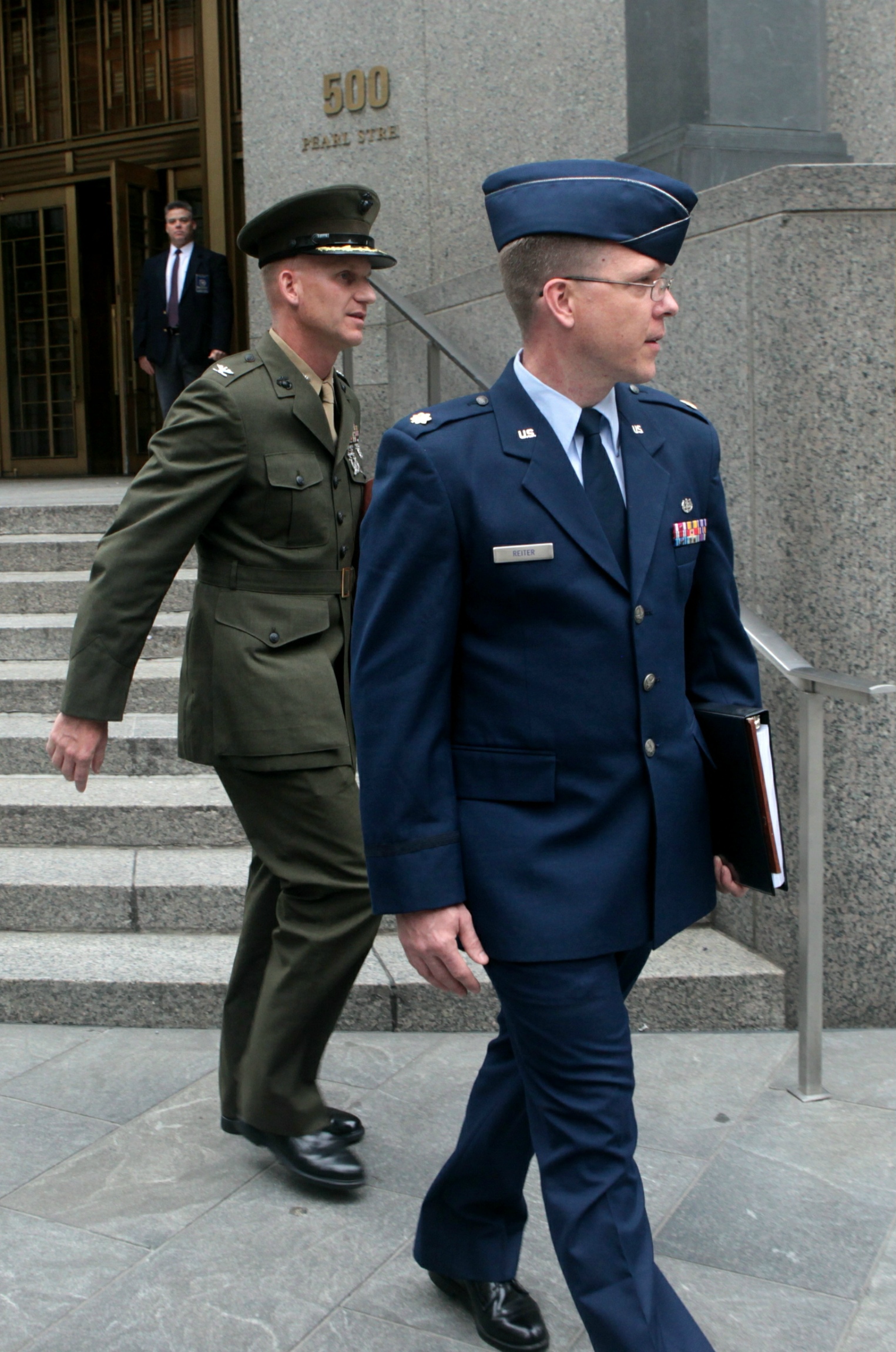
“They created a very rudimentary justice system to try to push these guys through,” Colwell said. “And it failed miserably. They’ve done next to nothing in 20 years. I was pretty much embarrassed by it.”
Initially, Colwell was preparing to be a military appellate judge. But at the last minute, he was selected to represent detainee Ahmed Khalfan Ghailani of Tanzania. By 2010, he became the chief defense counsel for the Office of Military Commissions. The office had roughly 40 attorneys, plus some civilian lawyers with expertise in death penalty cases. There were also interpreters, investigators and intelligence analysts.
Colwell was not pleased about his assignment. He traveled from the Washington, D.C. region to the military base in Cuba several dozen times.
“The camps are out towards the water and the beach. You drive out in a vehicle and you crest this little hill and you see the beautiful blue Caribbean,” he recalled. “Then you see these prison camps. The first time you see it, it’s a surreal thing. The prisoners probably don’t even know they’re on beachfront property.”
Being the enemy
Once in the role, Colwell realized his office was dealing with constitutional and ethical issues on a daily basis. He found that the government was essentially making up the system as it went along. Colwell, even though his job was to advocate in defense of his clients, nonetheless wore the country’s uniform of their captors – and their torturers.
“If your clients are who the United States says they are, they’re enemies. I’m their enemy, too,” he said. “Trust was a huge issue … A lot of them would refuse to meet with their lawyers.”
It was not just the detainees who presented challenges. In 2012, The Washington Post reported that the military official overseeing the detention facility ordered Defense Department personnel to inspect mail from the detainees’ counsel. Colwell advised his lawyers not to send confidential material to clients, lest they violate the established legal principle of attorney-client privilege.
“Everyone else seemed to be against us,” he recalled.
Colwell said he tried not to engage with people who knew what he did and had a critical view.
“I’m at my kids’ soccer games, and they’re looking at me, ‘Oh, I know what you do. I read about you,'” he said. “I even got it from my own mom.”
In Colwell’s view, military personnel were the lackeys for carrying out the commission system on behalf of other government entities, like the U.S. Department of Justice. (Both the justice and defense departments declined to comment.)
Of the 780 detainees since 2002, the Office of Military Commissions has designated only six with “completed” status. Four men pleaded guilty. One had the charges dismissed. The final person, Salim Ahmed Hamdan, won his landmark 2006 case of Hamdan v. Rumsfeld at the Supreme Court.
Nine detainees, by contrast, died while in custody, The New York Times found.
Colwell does not regret his role in the military commissions. He believes it helped him to get his current job. But he pointed to the meager results of two decades at Guantánamo’s improvised justice system as evidence that what the country did was not successful.
“In my opinion, did it make the United States any safer?” Colwell said. “Absolutely not.”
